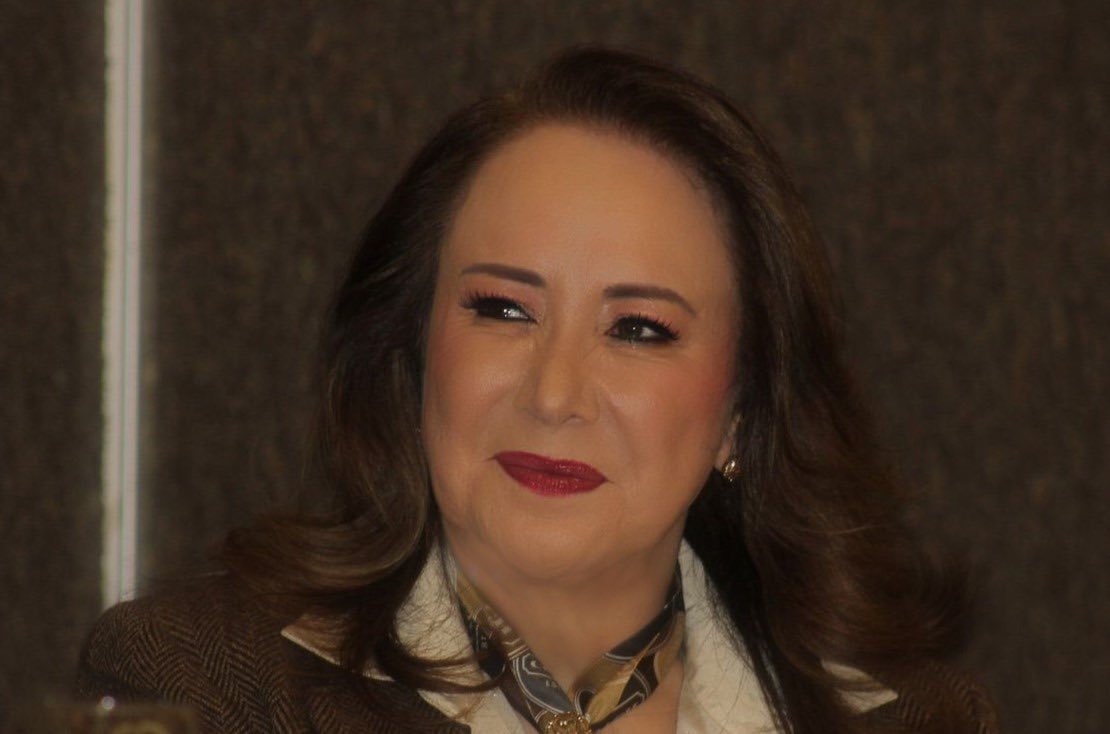MEXICO CITY (CN) — An ethics committee at the alma mater of Mexico Supreme Court Justice Yasmín Esquivel Mossa confirmed Wednesday evening that her undergraduate thesis was a “substantial copy” of one presented the year before.
The controversy stems from a LatinUS report from Dec. 21 claiming Esquivel had plagiarized a significant portion of the thesis she presented in 1987 from one presented the year before at the National Autonomous University of Mexico (UNAM).
Esquivel was a candidate for the chief justiceship in December but lost the job to Norma Piña Hernández, who became the first woman to lead the court in early January. Legal scholars told Courthouse News at the time that the plagiarism scandal played a role in tanking her candidacy.
The justice did not respond to a request for comment, but she did make several attempts to defend herself and her reputation in response to the allegations. On the day the LatinUS report was published, she posted a press release by her thesis adviser Martha Rodríguez Ortiz, in which the adviser claimed that the thesis was original work.
“It is not plagiarized, as the published column erroneously and falsely points out,” Rodríguez said.
The UNAM committee, however, wasn’t buying it, and is now investigating Rodríguez for several other similar or identical theses. In an interview with journalist Ciro Gómez Leyva earlier this week, the dean of the UNAM law school, Raúl Contreras, said the committee is looking into three more possibly plagiarized theses approved by the adviser.
Rodríguez, who was fired seven years ago, will not be allowed to return to teach in the law school at UNAM as a consequence of the investigation.
Despite the committee’s conclusion, however, there is nothing the university can do to sanction Esquivel, according to UNAM rector Enrique Graue Wiechers.
“[U]niversity regulations lack the mechanisms to invalidate the degree issued by the National University, even when the plagiarism of a thesis is documented,” he said in a statement issued Wednesday night.
Neither is she likely to receive any punishment outside of the university, according to legal scholar Sergio López Ayllón.
“There is no mechanism to sanction her as long as the competent authority — the Secretariat of Public Education — does not invalidate her degree,” he said. “If that were to happen, a political trial against the justice could proceed, but given the party makeup in Congress, I doubt that will happen.”
Esquivel was appointed to the court by President Andrés Manuel López Obrador, whose Morena party has the majority in both houses of Mexico’s Congress.
The other option is that Esquivel could step down from her seat on the court on her own, but López Ayllón said that is very unlikely.
“I honestly think that nothing is going to happen,” he said, pointing to remarks by López Obrador in his morning press conference Thursday in which he defended the justice from the university’s conclusion.
The president initially appeared to not have heard the news of the ethics committee’s conclusion until a reporter pointed it out to him.
“Yes, it’s plagiarism, but they have to tell us whether or not her degree is valid,” he said before going into a harangue of his favorite enemy, accusing “conservatism” of hypocritically “hoisting the flag of ethics.”
As for UNAM’s inability to invalidate her degree, he accused Graue of washing his hands of the affair “like Pontius Pilate,” and passing the buck onto the Secretariat of Public Education.
“Enough with the simulation and hypocrisy,” he said.
Although it is unlikely she’ll see political consequences, Esquivel is not out of the woods yet. She now faces the threat of a lawsuit from the man whose work the university says she plagiarized, Edgar Báez Gutiérrez.
Báez told LatinUS this week that he plans to sue her for “giving false information to authorities,” and said that the statements she and her adviser gave to the public and to authorities in their defense were false.
According to case files from the Mexico City district attorney’s office, the adviser Rodríguez claimed that she had received a signed letter from Báez in which he admitted to having “taken large parts” of Esquivel’s thesis.
Báez, who is going blind, told the outlet that he never signed such a letter.
“It’s illogical and incoherent to say that I had read or written any document, because I’m in danger of losing my sight,” he said. “An ophthalmologist has been treating me, because I have cataracts in both eyes. So, how is it possible that I’ve read or signed something?”
Subscribe to Closing Arguments
Sign up for new weekly newsletter Closing Arguments to get the latest about ongoing trials, major litigation and hot cases and rulings in courthouses around the U.S. and the world.









